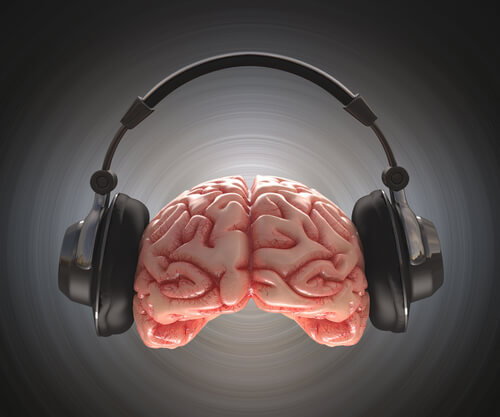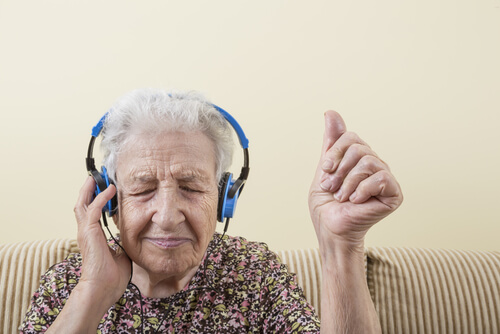Music Awakens Memories

We have all felt different emotions through music: sadness, joy, surprise, fear. It is a vehicle that moves us to the center of our emotions and transforms them, making a gray day more clear or reminding us of people or situations that come back to us for a moment. And the melodies have the power to carry us to the past.
The lesson that is tied to an emotion is more easily retrievable for our consciousness in the future. For this reason, all those memories that arouse a feeling and are associated with an emotion will be easier to remember.
Today musical therapies are used for diseases such as Alzheimer’s, with the aim of stimulating memory, improving attention, mood and having a relaxing effect. Sensory stimulation through music improves different conditions in dementia.
The music in our brain
Hearing is one of the most complex senses and its track communicates with many areas of the brain. These include the limbic system, nucleus accumbens and caudate nucleus, which are related to emotional processing.
Listening to music releases dopamine in the same way it is released with food, sex or drugs. So it has an impact on our mood and makes us feel good. Music induces physiological changes in us in the same way that any emotional stimulus does. Who hasn’t had their hair stand up listening to a song?

Music has the ability to bring memories related both to the lyrics content of the song and to the memory of an event that occurred while listening to the song. It can transport us to that moment and make us relive the emotions that made us feel.
Emotions facilitate memory
It is not the same to remember moments that have important meaning and to remember something that has no impact on our life. Those situations that meant something to us will be more accessible to our memory.

Our brain records and stores all those important moments for us. As music is so closely linked to emotions, it can serve as a stimulus to help us remember more easily.
Listening to a song that was our favorite song when we were 15 years old will bring to our memory those years, we can even feel the way we did at that time. Bringing all of this back to our memory is more accessible through music than if we simply tried to remember.
Music therapy to exercise memory
This therapy is widely used for various purposes, from relaxation to improving mood. It has also been used to improve attention and memory, especially in dementia such as Alzheimer’s. Music therapy is widely used with these kinds of patients, especially in very advanced stages of the disease.
It improves group cohesion, social contact and mood; something very positive in these kinds of patients who commonly experience apathy, depression and isolation. Usually the therapy has as main objective to use music as a means to activate emotions and, through these, remember vital moments important for the patient.

They usually put songs on from the time when the patient was young, the type of music he or she used to listen to and enjoy to try to evoke good memories in the person. In this way it facilitates them sharing experiences between them.
In the case of people who are at an advanced stage of the disease, although they cannot share the experience, they are shown to be able to understand and enjoy music since the auditory pathways are usually preserved. It is considered a good tool to stimulate the senses of people with dementia.
3 Secrets to Remember Better
Remembering everyday things is not so simple if we do not make a small effort to do it. In this article we give you 3 keys to… See more »
This text is provided for informational purposes only and does not replace consultation with a professional. If in doubt, consult your specialist.








